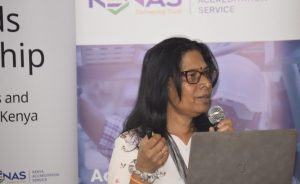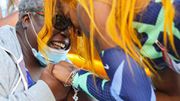Kenya is set to make major milestones in the scientific and healthcare research landscape, thanks to an ambitious programme targeting to accredit local biobanks.
In a partnership between the Kenya Government and a United Kingdom-based standard institution, the British Standards Institution (BSI), local researchers will benefit from intensive training on accreditation, and the local biobanks will be internationally recognised.
A three-day training workshop, which started in Nairobi on Tuesday, is targeting all biobanks under the custody of the Government and is being implemented by the Kenya Accreditation Service (KENAS) and BSI.
KENAS Chief Executive Officer Dr. Walter Ongeti said the accreditation process will make Kenya a leader in the region in terms of strong biobanks holding key samples and related health information.
“The accreditation will enhance Kenya’s profile in the international research field. For the first time in Africa’s history, Kenya is set to become a leader in biobank standardisation. This will ensure that our biological samples are stored and managed with the highest levels of integrity and scientific rigour,” he said.
Dr. Ongeti added that the certification programme will lead towards ISO 20387:2018 accreditation in the near future of the biobanks and thus open the country to more collaboration with international organisations and foreign countries.
The event brought together key stakeholders from Government agencies, universities, and healthcare institutions.
Ongeti explained further that the goal of the event was to equip potential assessors and implementers with the knowledge needed to align Kenya’s biobanks with international standards.
A biobank is a secure facility that stores biological samples and related health information for research purposes. Biobanks can contain blood, tissue, tumour cells, and DNA.
Biobanks serve as crucial repositories for biological materials, supporting research in genetics, disease control, and medical advancements. Adopting ISO 20387 will enhance Kenya’s ability to contribute to global scientific research while ensuring compliance with international best practices.
A trainer and Senior Expert at BSI, Dr. Vijay Pndayachee, outlined the accreditation process, emphasising the importance of impartiality, confidentiality, and robust quality management systems.
“This is not just about meeting a standard; it’s about positioning Africa as a global research powerhouse,” she noted.
Representatives from Kenya’s Ministry of Health, national universities, and regulatory agencies pledged their commitment to the initiative, recognising its role in improving healthcare outcomes and fostering innovation.
The training marks the beginning of a journey towards full accreditation, with Kenya leading the way in biobank standardisation on the continent. As the country takes this bold step forward, stakeholders remain optimistic that this will pave the way for more groundbreaking research and medical discoveries in Africa.
By Mark Muasa










